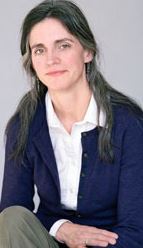 Ellen Airgood’s 2012 novel South of Superior has come in at numerous slots on the Michigan bestseller list over the past few months.
Ellen Airgood’s 2012 novel South of Superior has come in at numerous slots on the Michigan bestseller list over the past few months.
Tell us a little about your book and how it came to be?
When I started writing South of Superior, I wanted to convey a sense of place–the place I’ve lived and worked for the last twenty four years, a small village on the shore of Lake Superior–more than almost anything. I wanted to evoke the mood and spirit of the Upper Peninsula. It’s a fascinating, beautiful, hardscrabble place, a rare place. I hoped to share that. I began work on the novel on a sleety day in April, 2004, and after at least twelve major revisions, in the spring of 2010 my wonderful agent phoned to say that the Penguin Group’s Riverhead Books wanted to publish the novel.
What is your background? Specifically, what are your ties to the Great Lakes region?
I was born in Caro, Michigan, and grew up on a small farm a few miles out of town. I went to the University of Michigan in Ann Arbor and earned a B.S. in Natural Resources. I worked for the U.S. Environmental Protection Agency’s Motor Vehicle Emissions Laboratory in Ann Arbor for a couple of years after I graduated, in the Air Programs Branch. Then I took a fateful camping trip to the Upper Peninsula with my sister. I met my husband on that trip–he owned a small cafe in Grand Marais, at the edge of the Pictured Rocks National Lakeshore–and six months later returned to marry him.
Describe your writing process?
My writing process is messy and slow. It’s often agonizing. I like to work in the morning, very early, when it’s quiet and the day hasn’t yet begun. I will work whenever I can find the opportunity. I put in long hours on every project–sometimes to its benefit, sometimes to its detriment. Very rarely, I’ll hear a narrator’s voice in my head. That was the case with my second novel, Prairie Evers. I was sitting on my bed, listening to the rain on our tin roof and Prairie Home Companion on the radio when a young girl’s voice said in my head, Folks said it could not be done, but I did it. Writing is magic then, and I wish it was always that way, but it isn’t. Often a small moment sparks a novel or story. For South of Superior, the ideas that were milling around in my head came into focus when I received a postcard from my sister, an old black and white photo of two elderly women sitting on a lawn, leaned toward one another, talking. For The Education of Ivy Blake, my third novel (due out this June), the image that kept me moving forward was of Ivy tugging on her braid, frowning, thinking. I could see how brave and optimistic she was when she had every right not to be; I had to try and discover her fate.
Who is your favorite writer from the Great Lakes region? Why?
This is an unanswerable question! Many names come to mind, and there’ll be as many I should have thought of and didn’t.
I admire Mildred Walker’s work a great deal. (Her U.P. novel is Fireweed.) I’m inspired by Bonnie Jo Campbell’s ferocious talent and heart. I was fascinated and delighted by Ingrid Hill’s Ursula, Under. I read Gordon Young’s memoir about growing up in Flint, Tear Down, with feeling–much of my family is from Flint–and pleasure. Joseph Heywood is a great mentor and friend. This is the tip of the iceberg, there isn’t time to list them all. I’ll close by mentioning two short stories I reread recently and sort of wish I’d written: Janice Repka’s “Tug” and Jonathon Johnson’s “Notes from the End of my Occupational Life.” (They’re both included in The Way North, Wayne State University’s 2013 anthology of new Upper Peninsula writing.) Why are all these writers my favorites? They’re unique, they’re inventive, they’re real without being bleak.